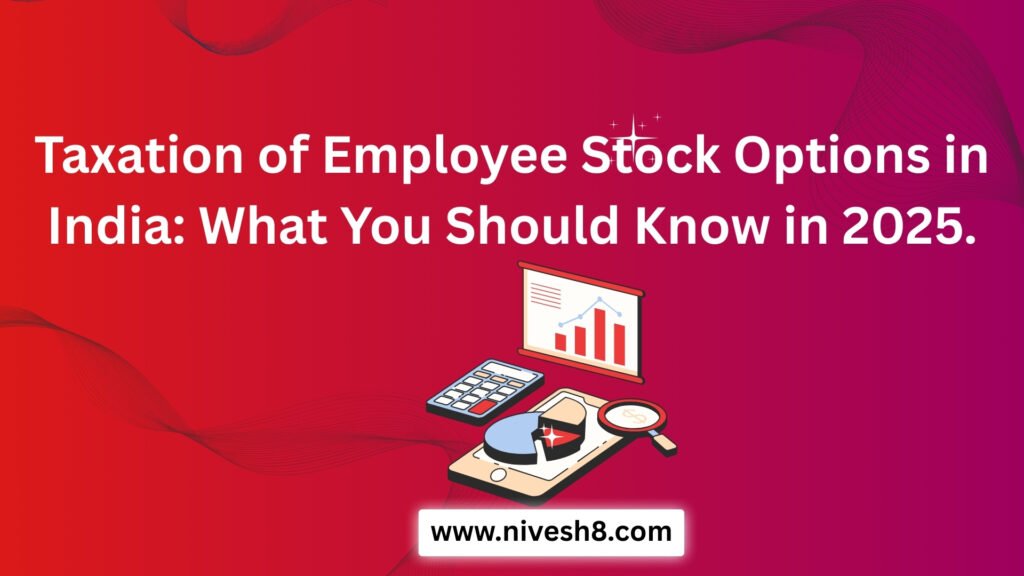One fantastic advantage is obtaining employee stock options (ESOPs). You thus have the opportunity to own a bit of the company you work for. Taxes then become relevant whether you choose to sell the shares or use those options. Therefore, it is crucial to comprehend the taxation of employee stock options. Let’s dissect how ESOPs are taxed in India and consider what you should keep in mind for 2025 on this blog.
Employee Stock Options, or ESOPs:
Employee stock options allow you, after a specified period, the right to purchase a set number of company shares at a pre-decided price—known as the exercise price. Many times, these are used to thank staff members and inspire them to remain with the business. ESOPs do, however, have a tax obligation as well as advantages.
Employee Stock Option Taxation: Two Stages
Two important points define the taxation of employee stock options:
- During the Exercise Time
This is the moment you decide to purchase the company’s shares at the set price. Paid as perquisite under the head salary income.
Fair Market Value (FMV) – Exercise Price: Taxable Value
Tax is paid according to your slab of income tax.
For instance:
- FMV on the exercise date is ₹500.
- Price for exercise: ₹200
- Taxable value: ₹300 per share
- Your pay is added with this ₹300 per share for tax computation.
- FMV on the exercise date is ₹500.
- During the Sale Period
Capital gains tax is due when you sell the shares on the difference between FMV on exercise date and sale price.
Short Term Capital Gains (STCG):
- Sold (for listed shares) within a year
- Paid 15% tax.
- Sold (for listed shares) within a year
- Long Term Capital Gains (LTCG):
- Sold, for listed shares, after twelve months
- Tax-free is ₹1 lakh of gain; the remaining amount taxed at 10%.
- Sold, for listed shares, after twelve months
- LTCG for unlisted shares calls for holding more than 24 months. LTCG is taxed indexatively at 20%.
Unique Tax Advantage for Start-ups
Should you work for a DPIIT-registered startup, you might be eligible for a tax benefit:
- Tax on the perquisite (at exercise) is postponed.
Whichever is earliest, you pay it later:
- Following five years
- As you depart from the business
- Following your sale of the shares
For startups, this advantage helps lower the immediate tax load.
Files You Should Save:
- ESOP grant and exercise letter
- FMV certificate, particularly for unlisted shares
- Details of a sale transaction, including brokerage slips
- Form 16 (for perfect reporting)
Last Notes
You can improve your financial planning by understanding the taxation of employee stock options. Think of the taxes at every level in addition to the value of the shares. Before exercising or selling your ESOPs, regardless of your company—big tech or startup—it’s wise to consult a tax specialist. One excellent approach to increase wealth is with stock options; just be sure you handle the taxes correctly.



